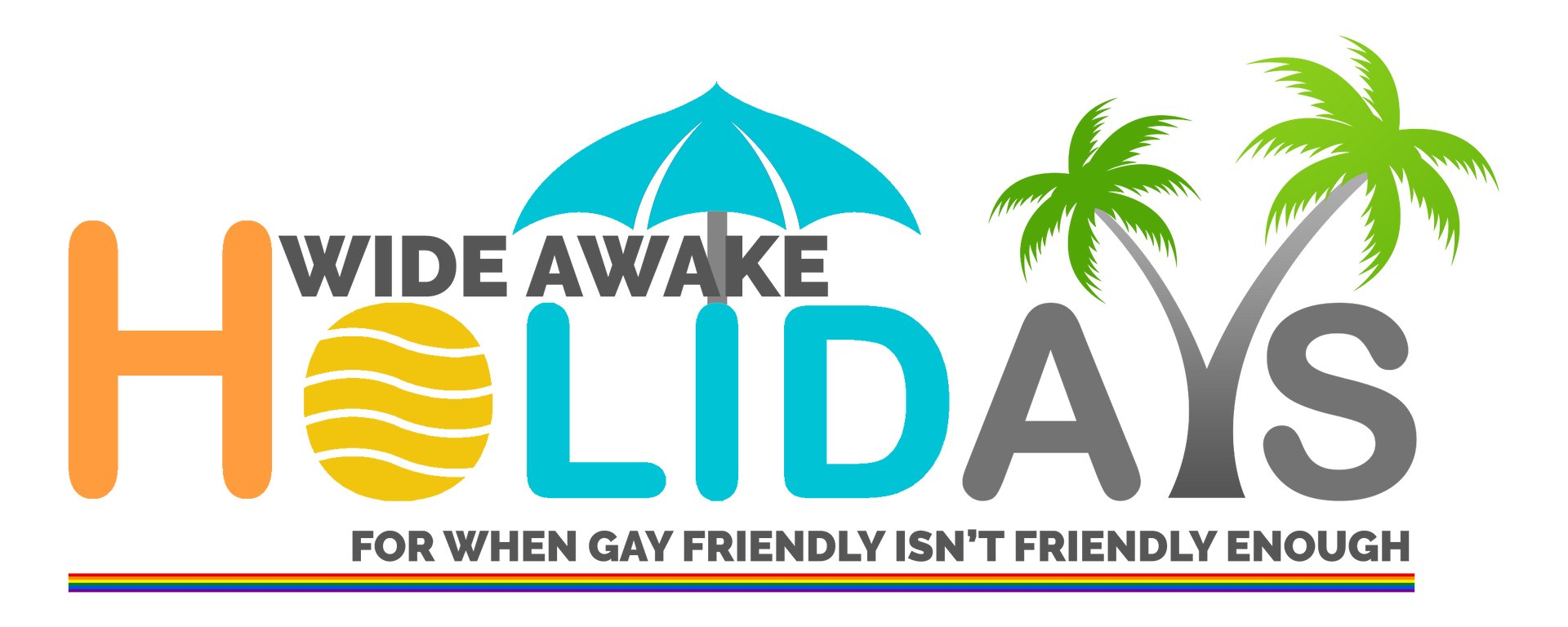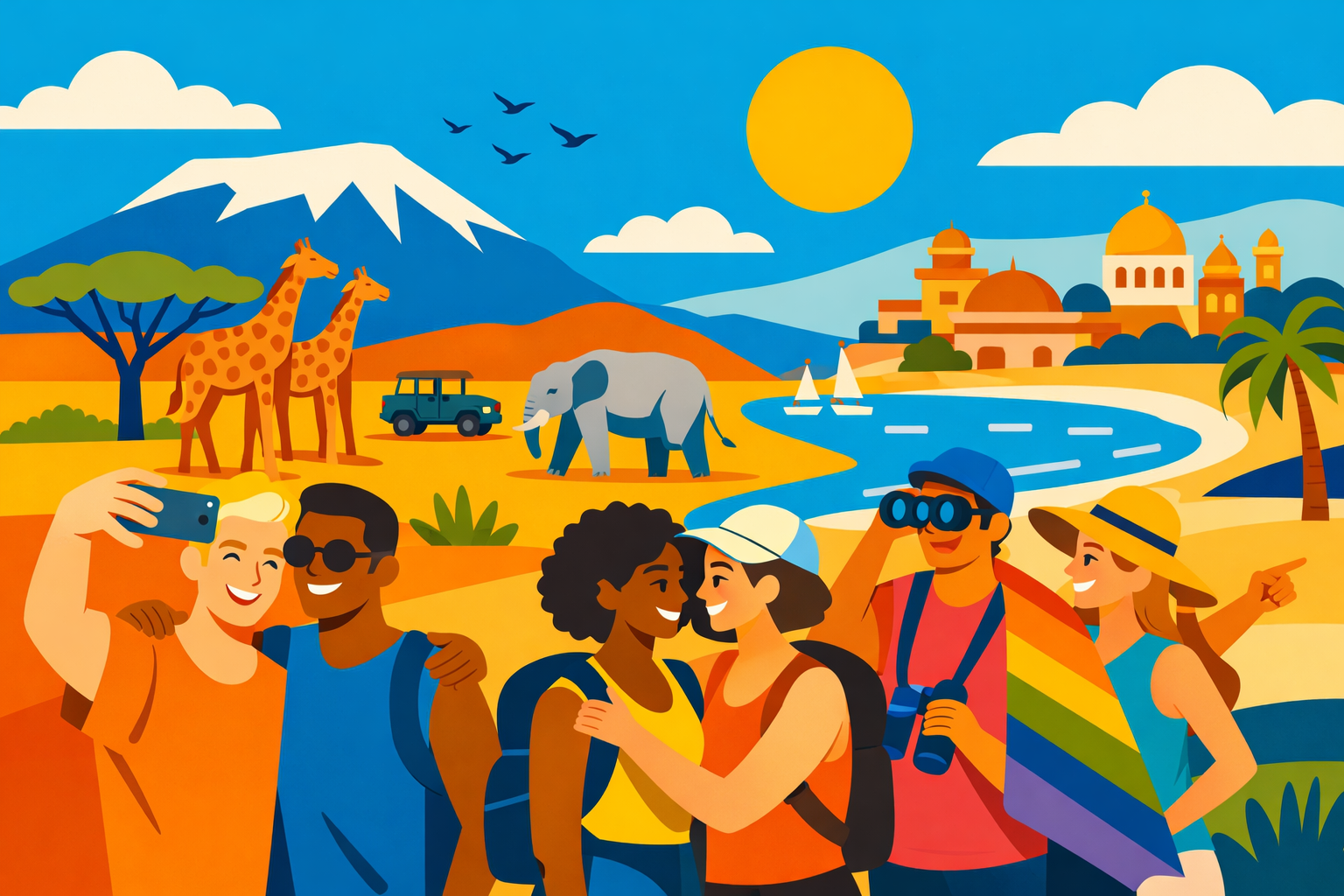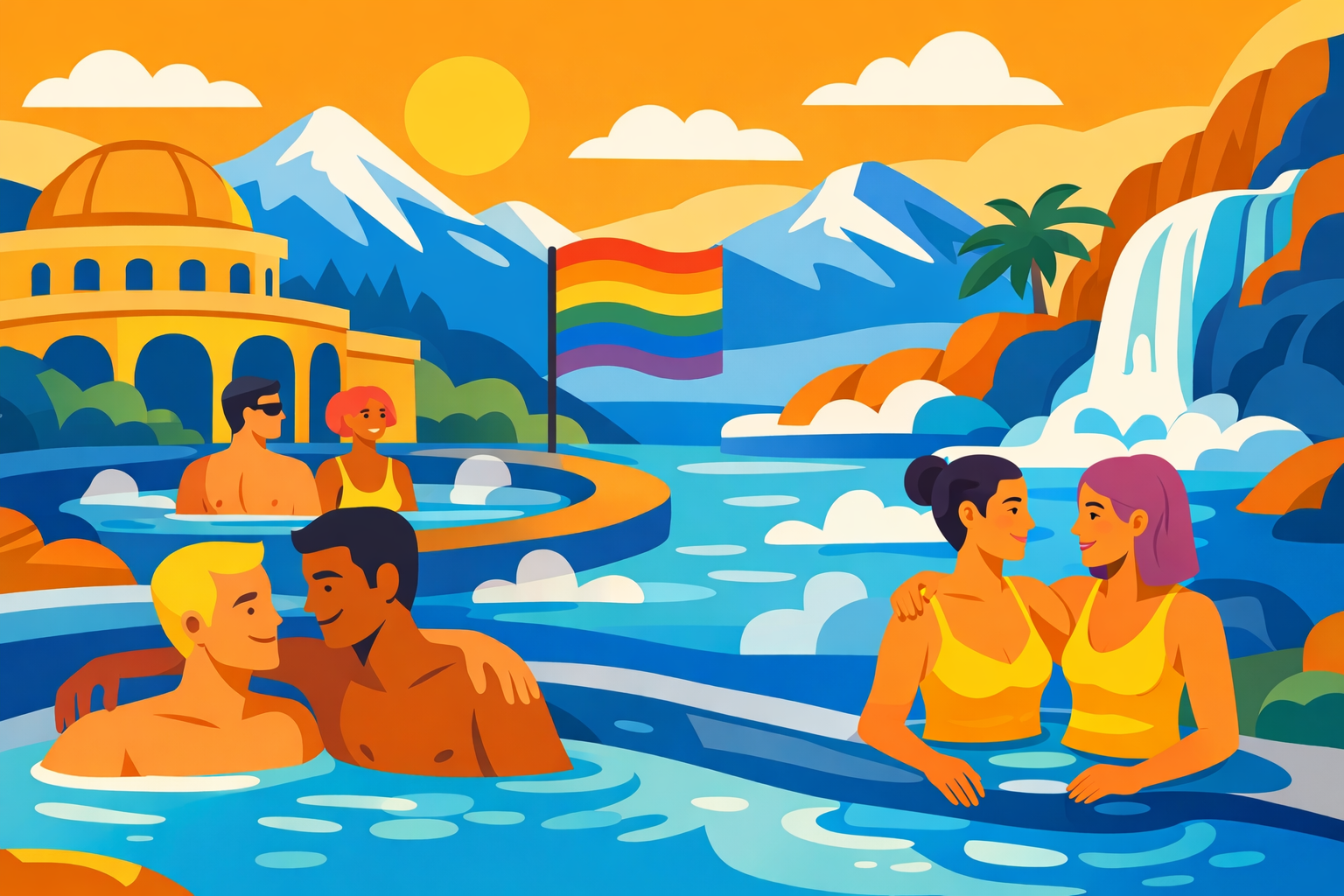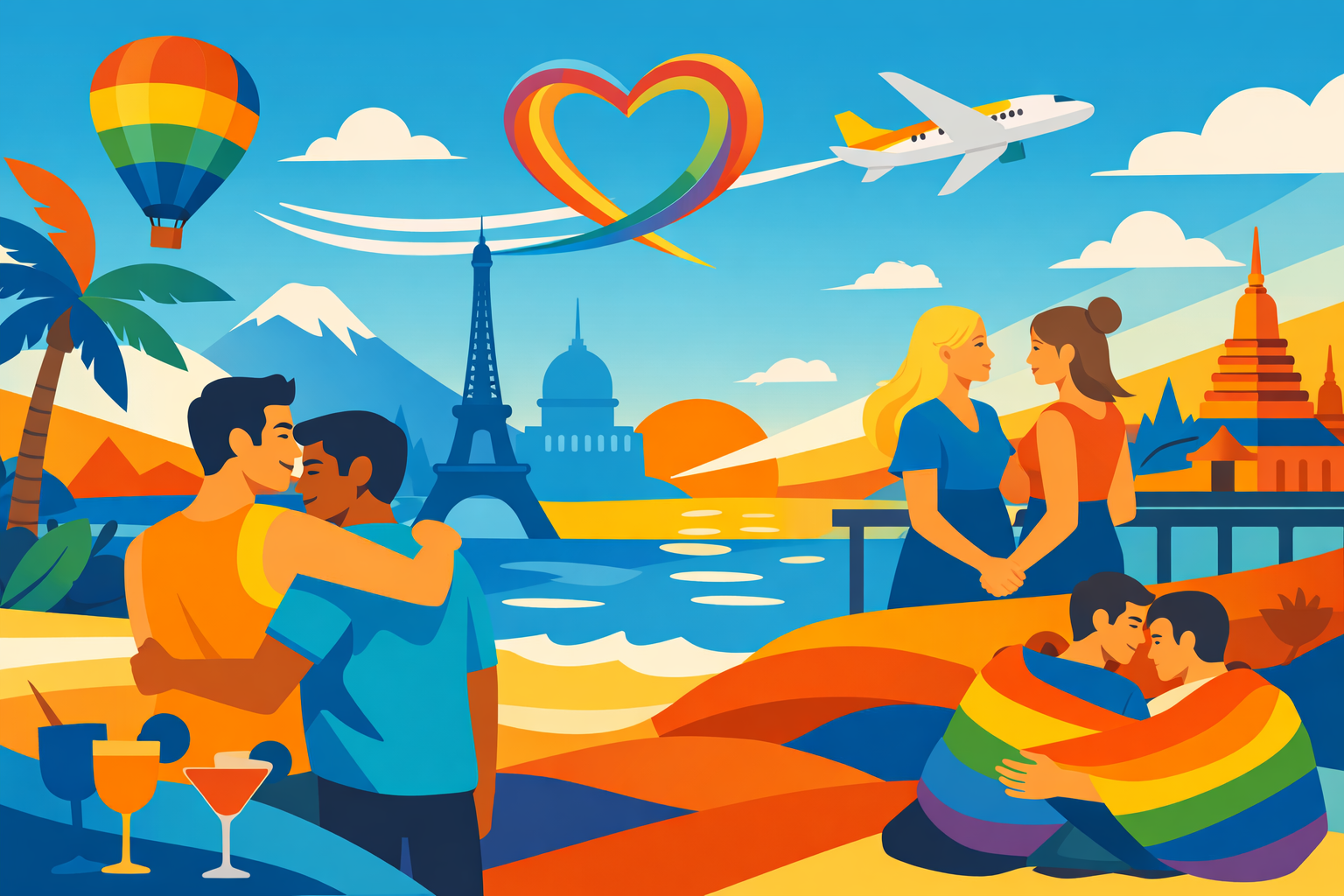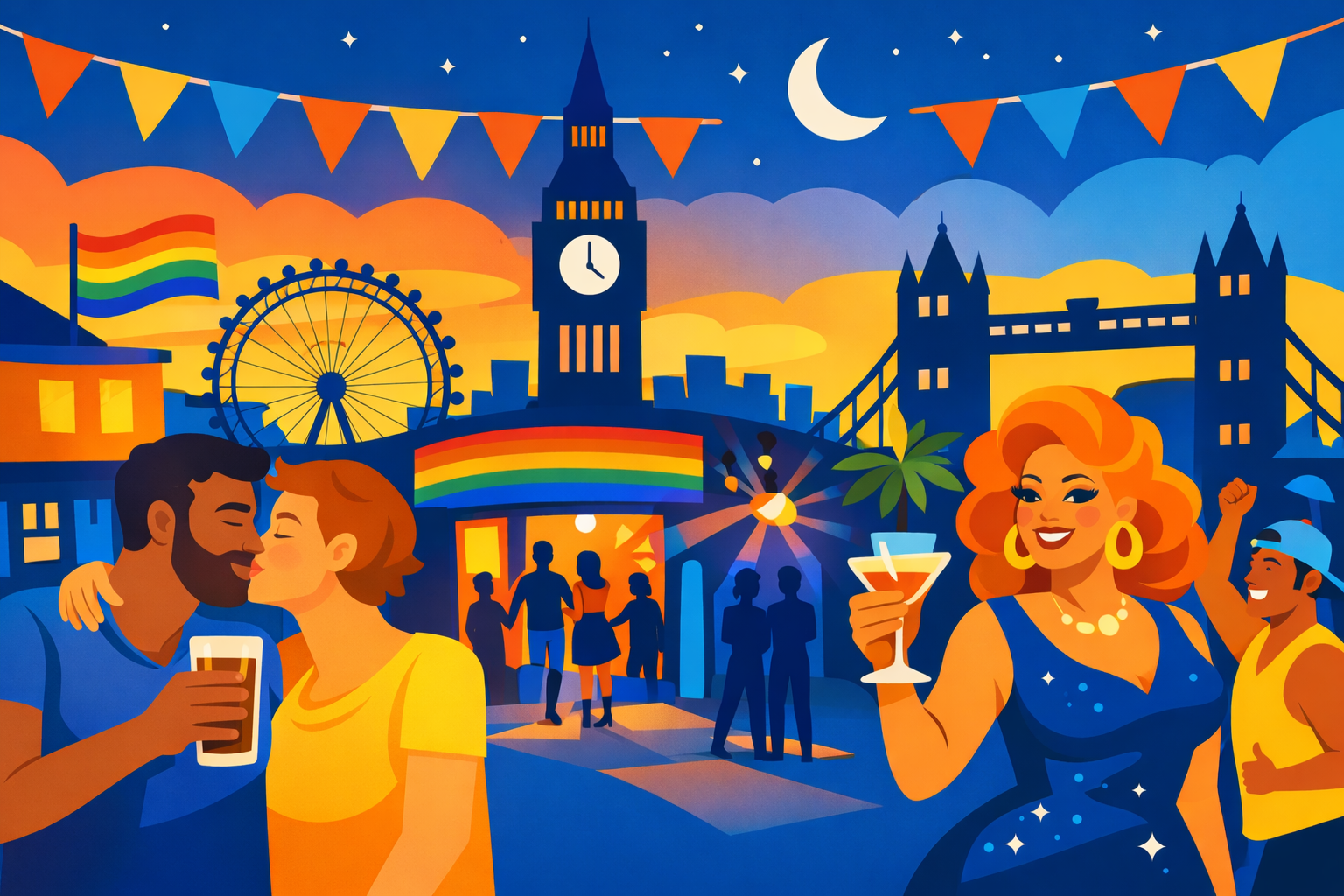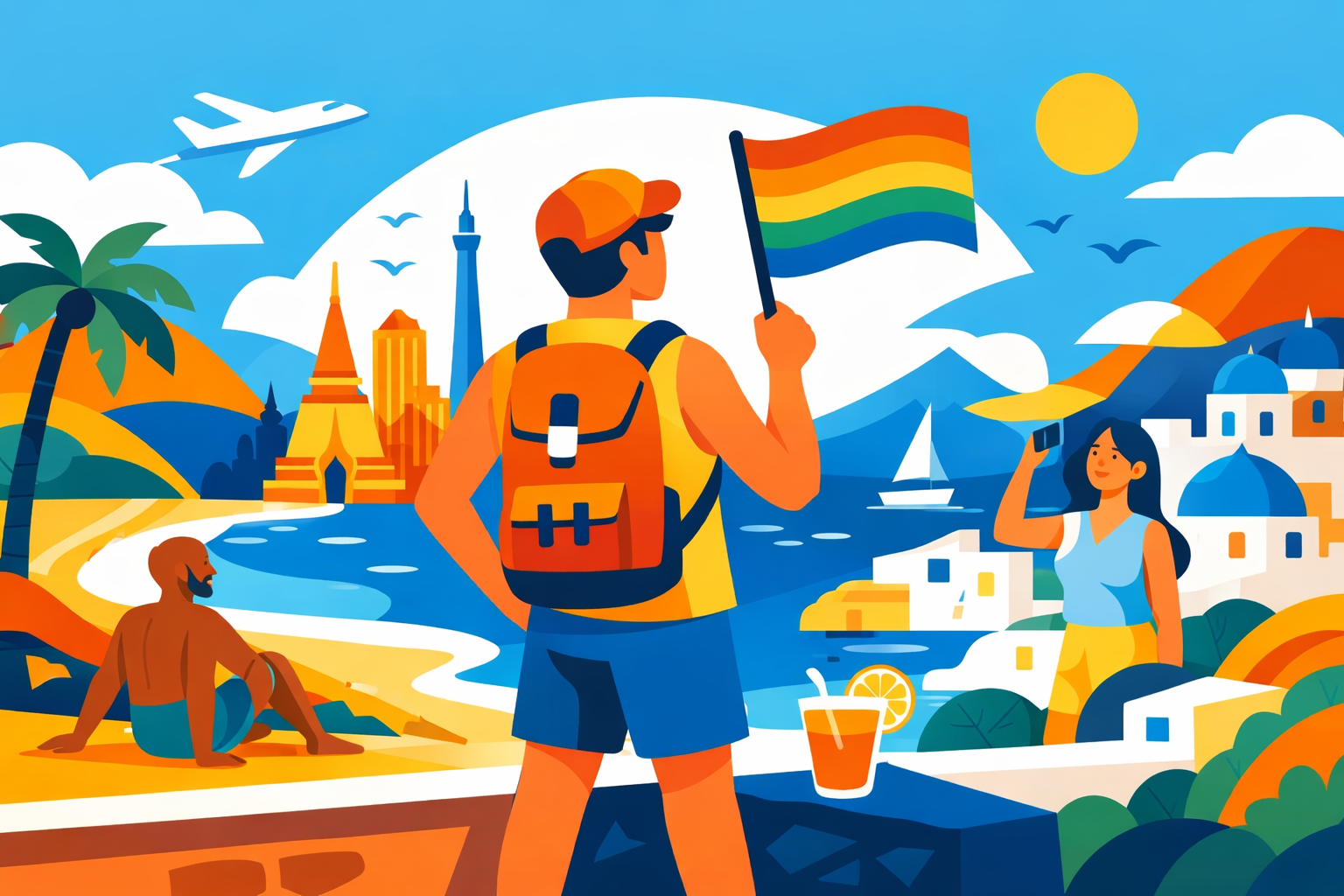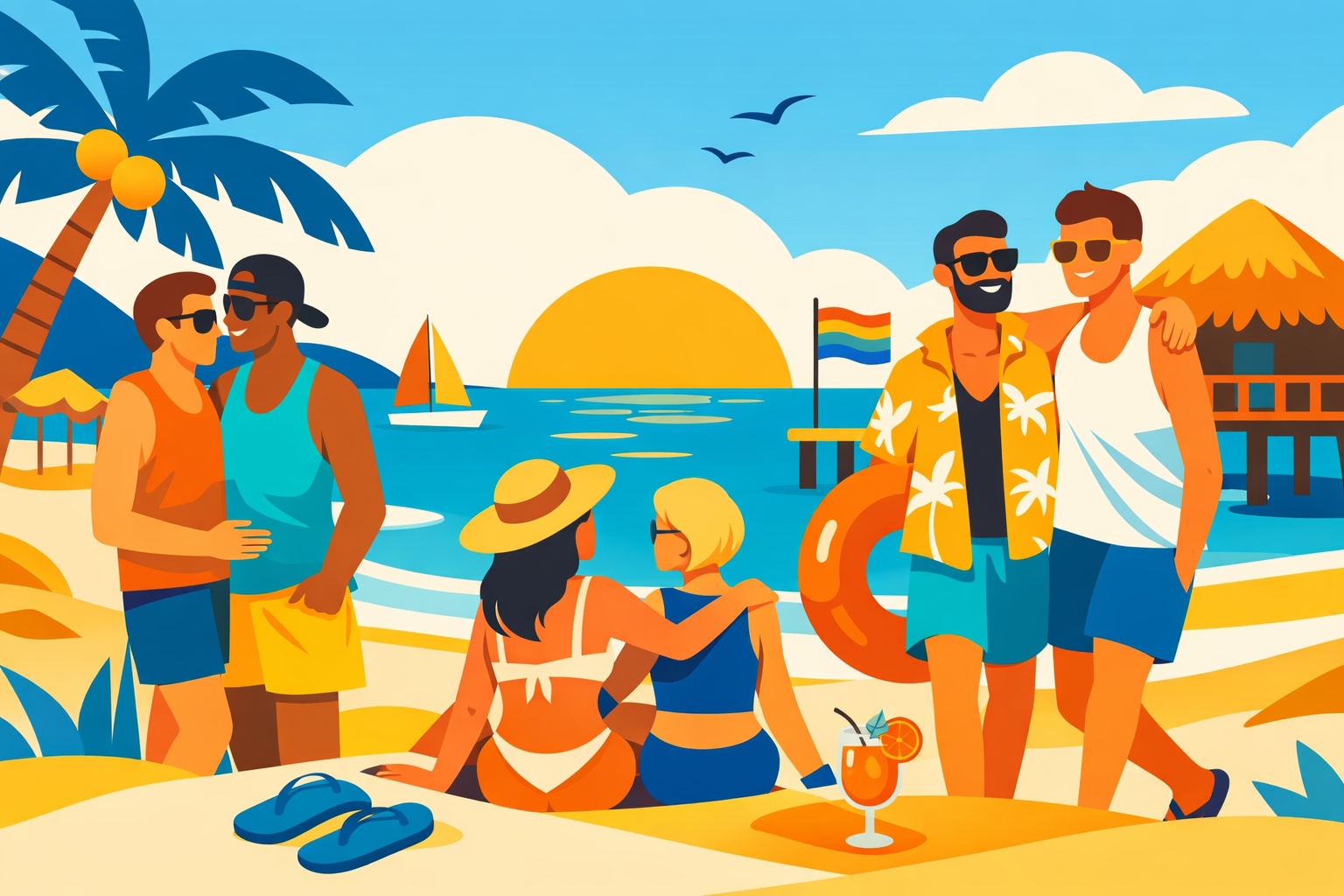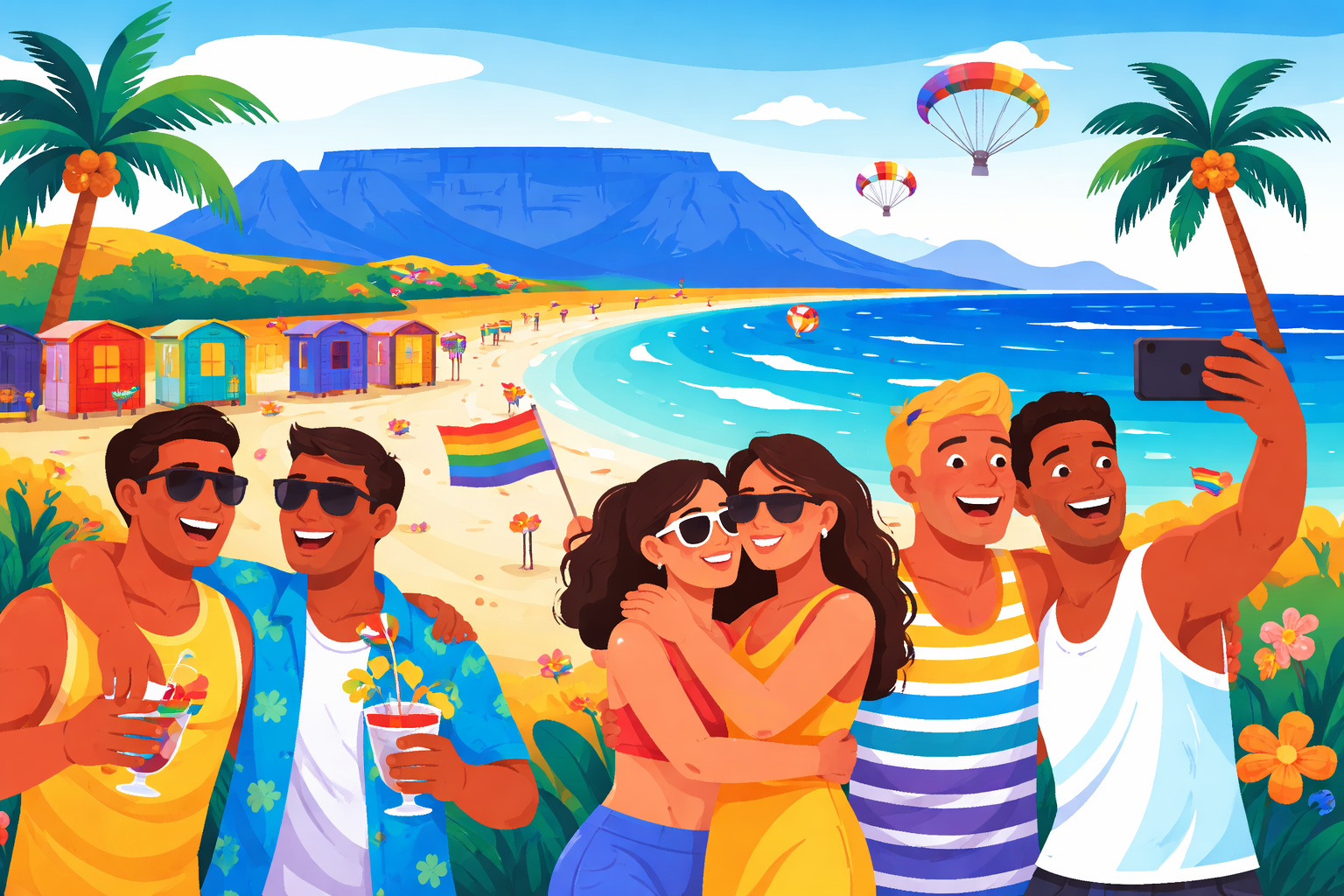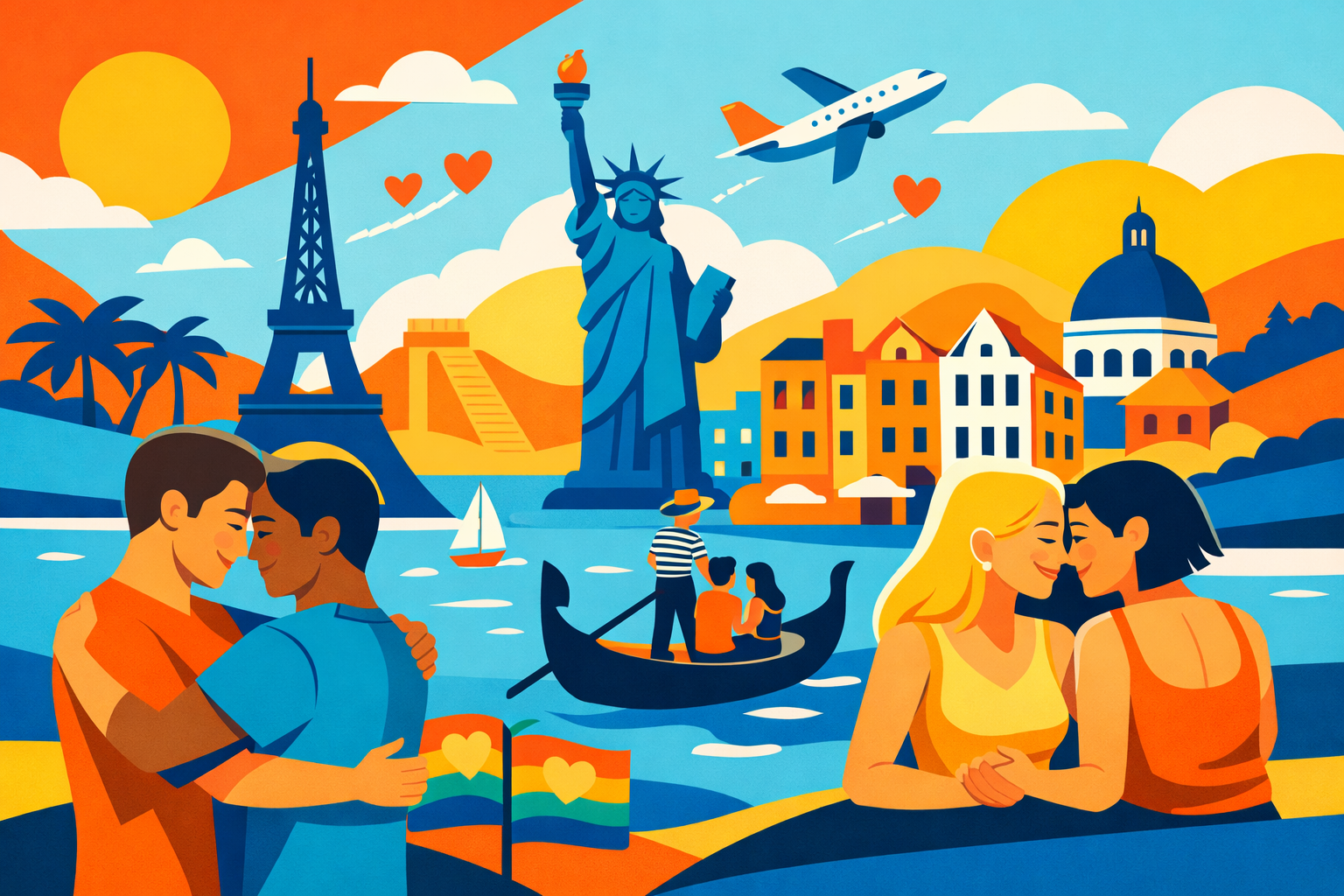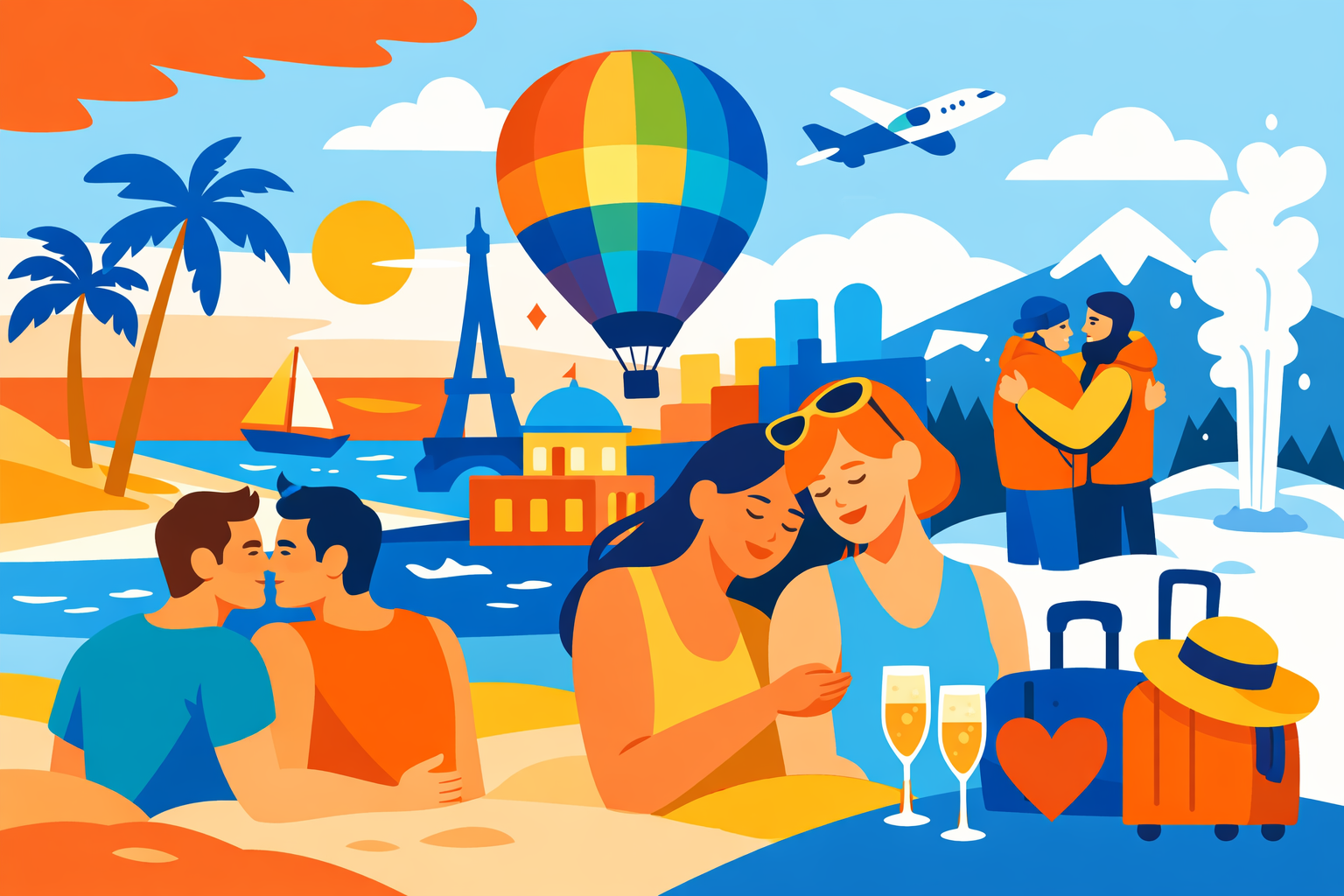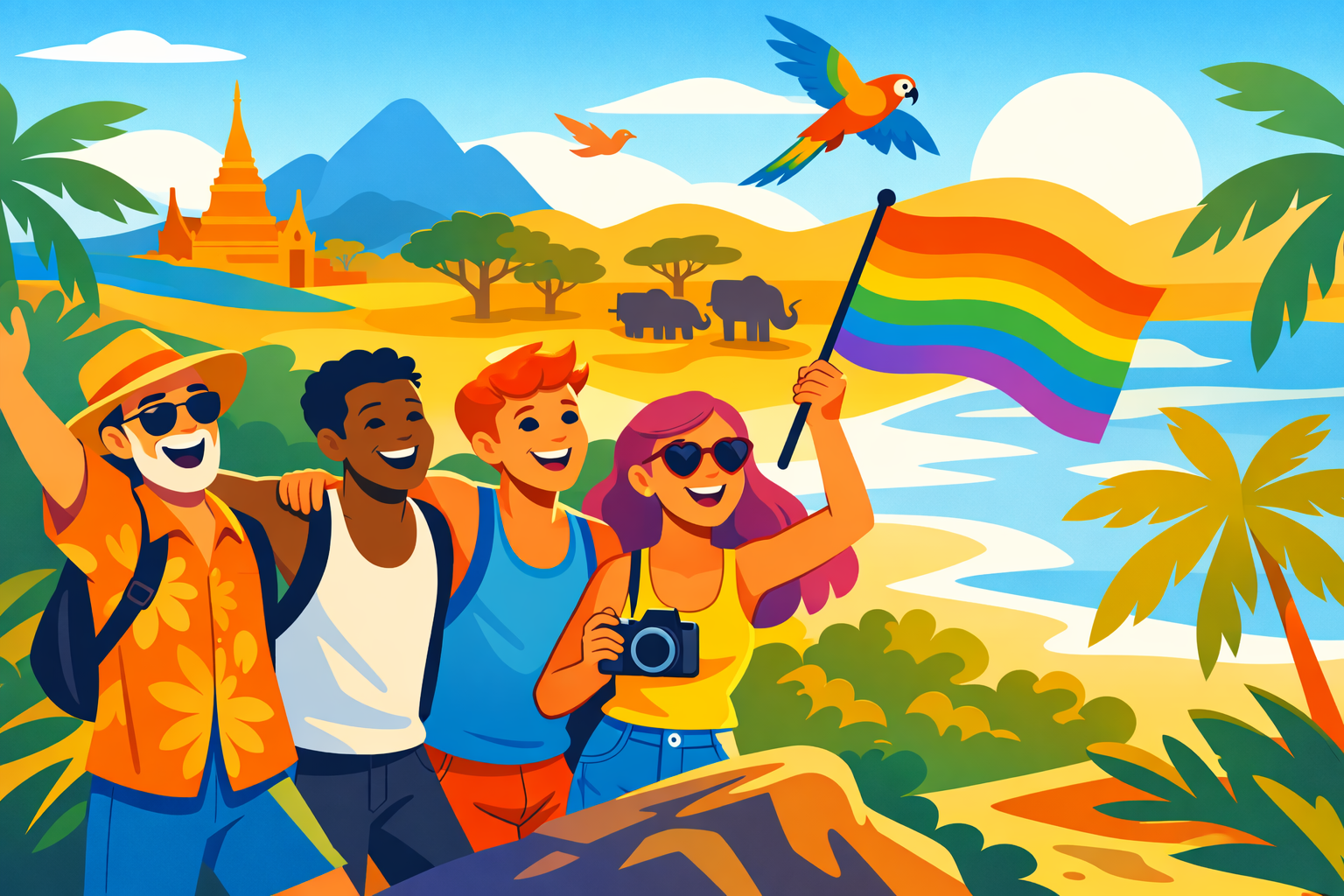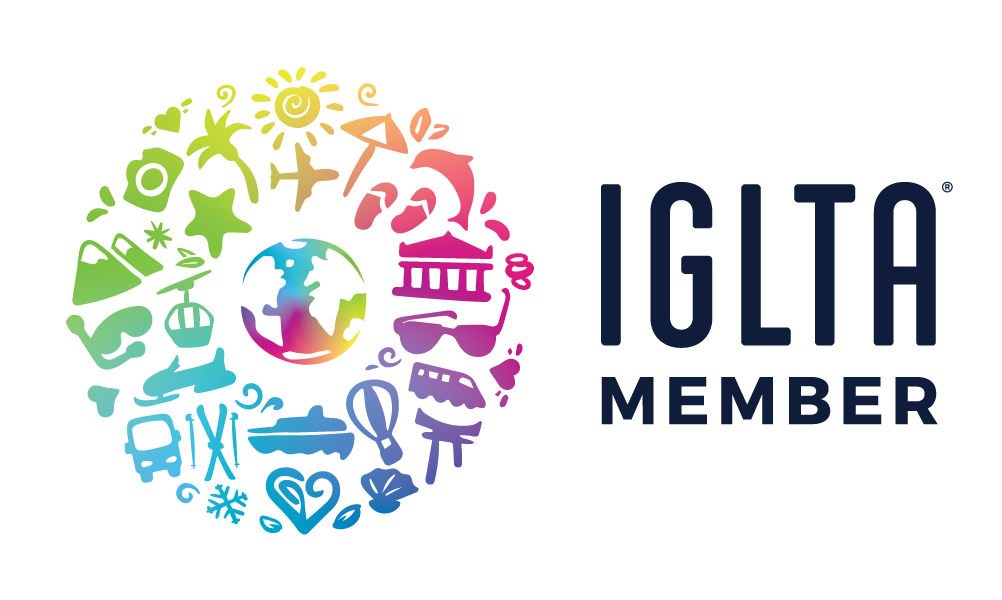LGBT Travel Myths: Debunking Common Misconceptions
LGBT Travel Myths: Debunking Common Misconceptions
Travelling while LGBT+ can be thrilling, freeing, and full of discovery — but it also comes with persistent myths that shape how we see the world and how the world sees us.
From safety fears to stereotypes about who queer travellers are, LGBT travel myths have a way of holding people back from exploring with confidence.
The truth? Most of these assumptions are outdated or simply wrong.
And with the right knowledge, planning, and support, LGBT+ travellers can see the world safely, proudly, and on their own terms.
Let’s unpack the biggest LGBT travel myths
— and reveal the reality behind them.
Myth #1: “Most Countries Aren’t Safe for LGBT Travellers”
This is probably the most common myth of all.
Yes, laws and attitudes vary widely from one country to another, but the belief that only a handful of destinations are “safe” for LGBT travellers isn’t accurate anymore.
The truth behind the myth
While it’s true that some regions still have restrictive laws, most travellers will find that local reality is far more nuanced.
Many destinations labelled “unsafe” by reputation actually have thriving queer communities and inclusive neighbourhoods.
For example:
- In Thailand, same-sex marriage only recently became legal, yet queer nightlife and trans visibility have been prominent for decades.
- Japan doesn’t yet offer national marriage equality, but many cities issue partnership certificates and have welcoming travel sectors.
- Even in countries with conservative laws, individual resorts, hotels, and tour operators often provide safe, affirming spaces.
It’s about where you go, not just what’s written in law.
How to travel smart
- Research beyond headlines. Laws are one part of the story; on-the-ground experiences often differ dramatically.
- Connect with LGBT-friendly operators — agencies like Wide Awake Holidays specialise in identifying inclusive hotels, guides, and excursions.
- Check recent traveller reports. Online forums and social media communities offer up-to-date insights that official travel warnings can’t always provide.
So, while caution is wise, assuming the world is off-limits is one of the most damaging LGBT travel myths out there.
Curiosity and preparation go much further than fear.
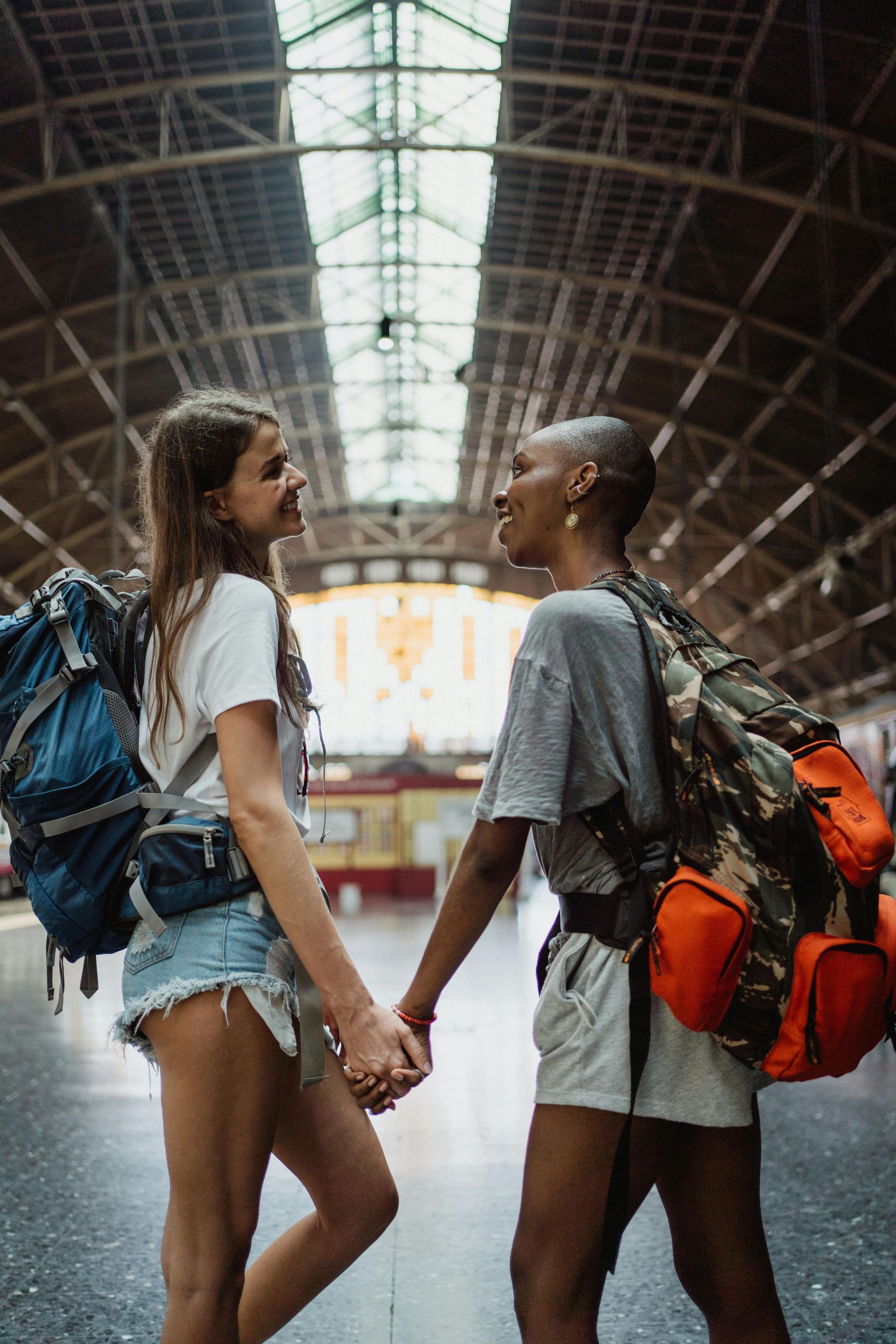
Myth #2: “LGBT+ Travellers Need to Stick to Gay Resorts or Pride Events”
Many first-time queer travellers feel safest booking an LGBT-specific holiday — maybe an all-gay resort, cruise, or Pride trip.
Those spaces are brilliant for community connection, but the idea that they’re the only safe or enjoyable options? That’s another myth.
The truth behind the myth
Mainstream travel has evolved.
Many global hotel brands, airlines, and tour operators have made inclusion central to their operations.
Staff training, non-discrimination policies, and visible support (like rainbow welcome packs or inclusive marketing) are becoming the norm rather than the exception.
In destinations like Spain, Portugal, and Mexico, most mid-range and upscale resorts are LGBT-friendly even if they’re not exclusively queer spaces.
And beyond hotels, countless local experiences — wine tours, cooking classes, safaris, yoga retreats — openly welcome queer travellers.
So rather than limiting yourself to explicitly LGBT spaces, you can often enjoy a more authentic connection by mixing both.
How to plan your perfect mix
- Combine LGBT-specific stays with local experiences. Start with an LGBT-friendly resort, then explore neighbourhoods or tours that reflect the local culture.
- Look for ‘quiet inclusion’. Not all inclusive places advertise it loudly — sometimes the most affirming experiences are subtle but sincere.
- Ask before you book. A quick email to confirm a hotel’s stance on same-sex couples can save you stress later.
This myth limits more than safety — it limits connection.
By mixing community comfort with wider adventure, you’ll get the best of both worlds.
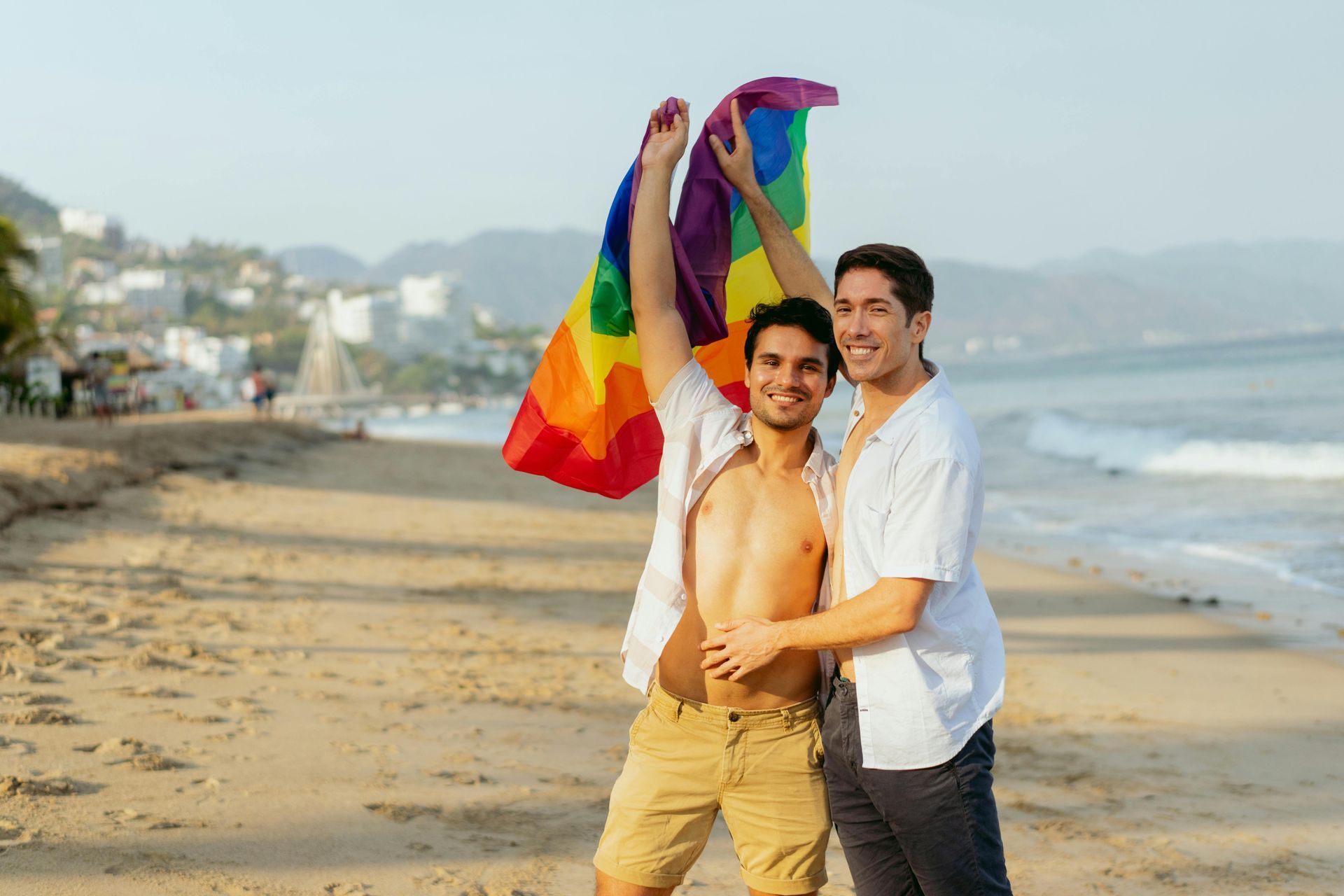
Myth #3: “It’s Impossible to Find LGBT-Friendly Accommodation Abroad”
This myth keeps resurfacing in travel forums, usually shared by nervous first-timers. It’s rooted in the fear of being turned away, stared at, or asked awkward questions when checking in as a same-sex couple. While those worries are understandable, the global hospitality industry has transformed over the past decade. From boutique guesthouses in Lisbon to five-star resorts in the Maldives, inclusivity is now a key part of staff training and brand identity. Most major hotel groups — including Accor, Hilton, and Marriott — have global LGBT+ inclusion policies. That means front-desk staff are trained to welcome all couples equally, and booking systems are neutral about guest gender combinations. Beyond big chains, thousands of small and independent hotels openly market to queer guests. Websites such as Misterb&b, World Rainbow Hotels, and Purple Roofs let travellers search for verified inclusive properties. Still, “LGBT-friendly” can mean different things depending on where you travel. In some destinations, friendliness is subtle — quiet acceptance rather than rainbow flags. Elsewhere, it’s loud, proud, and celebrated through local Pride partnerships or drag brunches.
Practical booking advice
- Email before booking. A quick, polite message like “We’re a same-sex couple — just checking your hotel is welcoming?” gives you a clear sense of tone.
- Look for verified partners. Travel agencies that specialise in LGBT+ holidays maintain updated lists of inclusive hotels.
- Read traveller reviews. Comments from other LGBT+ guests offer candid insight you won’t find on official listings.
So, while outdated experiences do happen occasionally, it’s now far from “impossible.” The real challenge is often choosing from so many genuinely inclusive options.
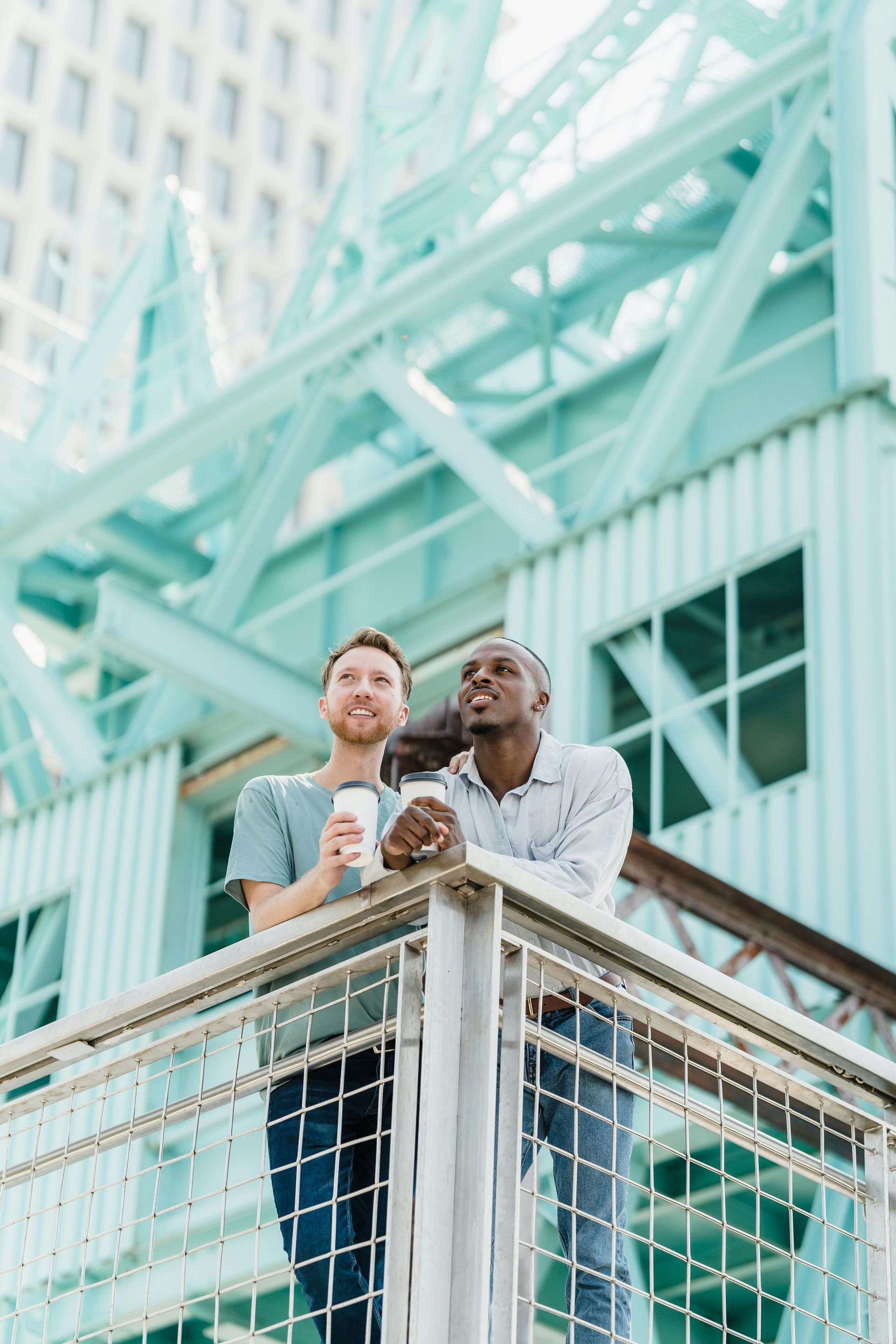
Myth #4: “LGBT+ Travellers Don’t Have Proper Travel Protections or Insurance Options”
This one stems from confusion about how travel protections apply to LGBT+ couples and families.Many assume that travel insurance, refund guarantees, or consumer protections don’t cover same-sex partners — or that claims might be denied due to identity.
The truth is that travel protections are designed for all consumers. If a couple is legally recognised in their home country, most insurers and travel providers extend those rights abroad.
Booking through an ATOL-protected and PTS-member agency (like Wide Awake Holidays) adds an extra layer of legal and financial security. That protection means your holiday money is safe even if an airline or operator fails. Insurance companies have also updated their policies. Providers such as OutBacker, InsureandGo, and Allianz explicitly include LGBT+ couples and families, covering medical emergencies, cancellations, and lost belongings regardless of gender or orientation.
How to secure your cover
- Check policy language. Ensure your insurer recognises civil partnerships or same-sex marriages.
- Disclose honestly, not excessively. Only share relevant details — your identity shouldn’t affect pricing or validity.
- Ask your agent for inclusive providers. Agencies specialising in LGBT+ travel know which underwriters offer clear protection.
Ultimately, the belief that queer travellers have “less protection” is a leftover myth from a less inclusive era.Today, the right booking structure can make LGBT+ holidays just as safe — or safer — than mainstream ones.

Myth #5: “You’ll Always Face Discrimination When Travelling Queer”
This myth combines fear, trauma, and outdated generalisation.Yes, discrimination exists — and it’s wrong wherever it happens.But assuming that every trip will include hostility or judgment can stop people from ever stepping on a plane.
Reality tells a different story.According to global LGBT+ travel surveys, the majority of queer travellers report positive experiences abroad, especially when they choose inclusive destinations and providers.
In many countries, hospitality professionals see queer travellers as valued guests — often among the most loyal, generous, and curious visitors.Tourism boards from Iceland to South Africa now run dedicated LGBT+ campaigns, while cities like Taipei, Toronto, and Buenos Aires host internationally celebrated Pride festivals that draw millions each year.
Understanding where discrimination happens — and why it’s not the whole story
Discrimination isn’t evenly spread.It tends to appear in isolated rural areas, poorly trained service environments, or specific bureaucratic processes like border crossings.Even then, the issue often stems from ignorance rather than malice.
The solution isn’t to avoid travel altogether but to travel smarter:
- Learn your rights before you go. Knowing the local legal context helps you respond calmly if something arises.
- Support queer-owned businesses. Spending power strengthens inclusive communities wherever you visit.
- Share positive experiences online. Visibility challenges bias and shows others what’s truly possible.
When travellers move through the world visibly and safely, they quietly rewrite perceptions.The more LGBT+ travellers explore, the fewer barriers remain for those who follow.
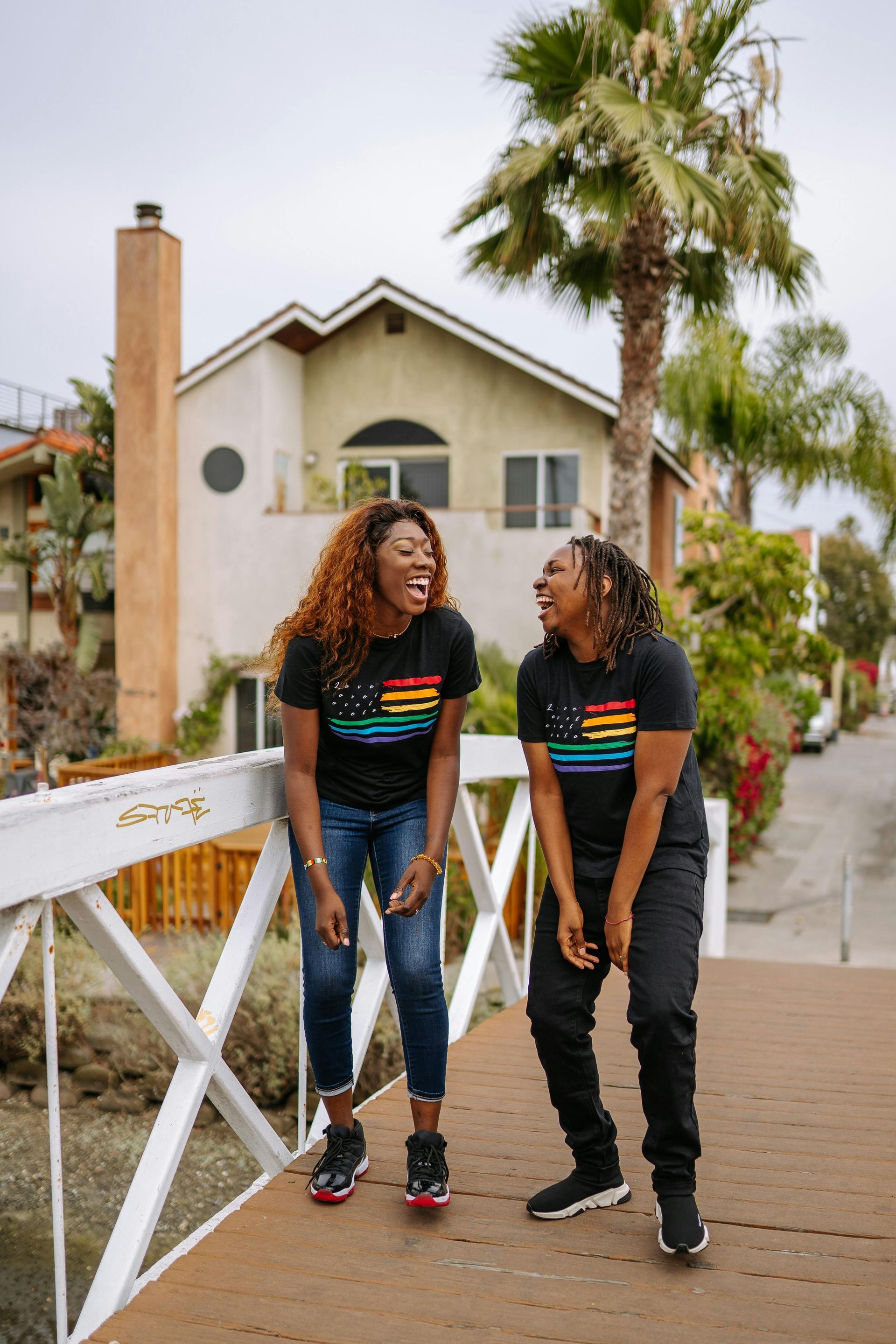
Myth #9: “LGBT+ Travel Is Only for the Wealthy”
Some travellers still believe queer holidays are synonymous with five-star resorts and exclusive cruises.It’s a perception built on years of marketing aimed at a narrow slice of the community.
The truth behind the myth
LGBT+ travel today is as varied in budget as in identity.Low-cost airlines, group tours, volunteer programmes, and hostel networks all now welcome queer guests openly.Cities like Budapest, Chiang Mai, and Lisbon offer vibrant queer culture at a fraction of the price of traditional hotspots.
Online platforms such as Gay Hostel World and inclusive backpacker groups on social media have made budget queer travel mainstream.Many Pride events are free, and community-run festivals in smaller towns combine affordability with authenticity.
Affordable and inclusive planning tips
- Travel off-season. Queer-friendly destinations are often cheaper outside Pride months.
- Share accommodation. Group villas or homestays lower costs and boost community.
- Book through agencies with price-match guarantees. They can secure deals without compromising protection.
The idea that inclusivity costs extra is outdated.Visibility and belonging shouldn’t depend on income — and they don’t have to.
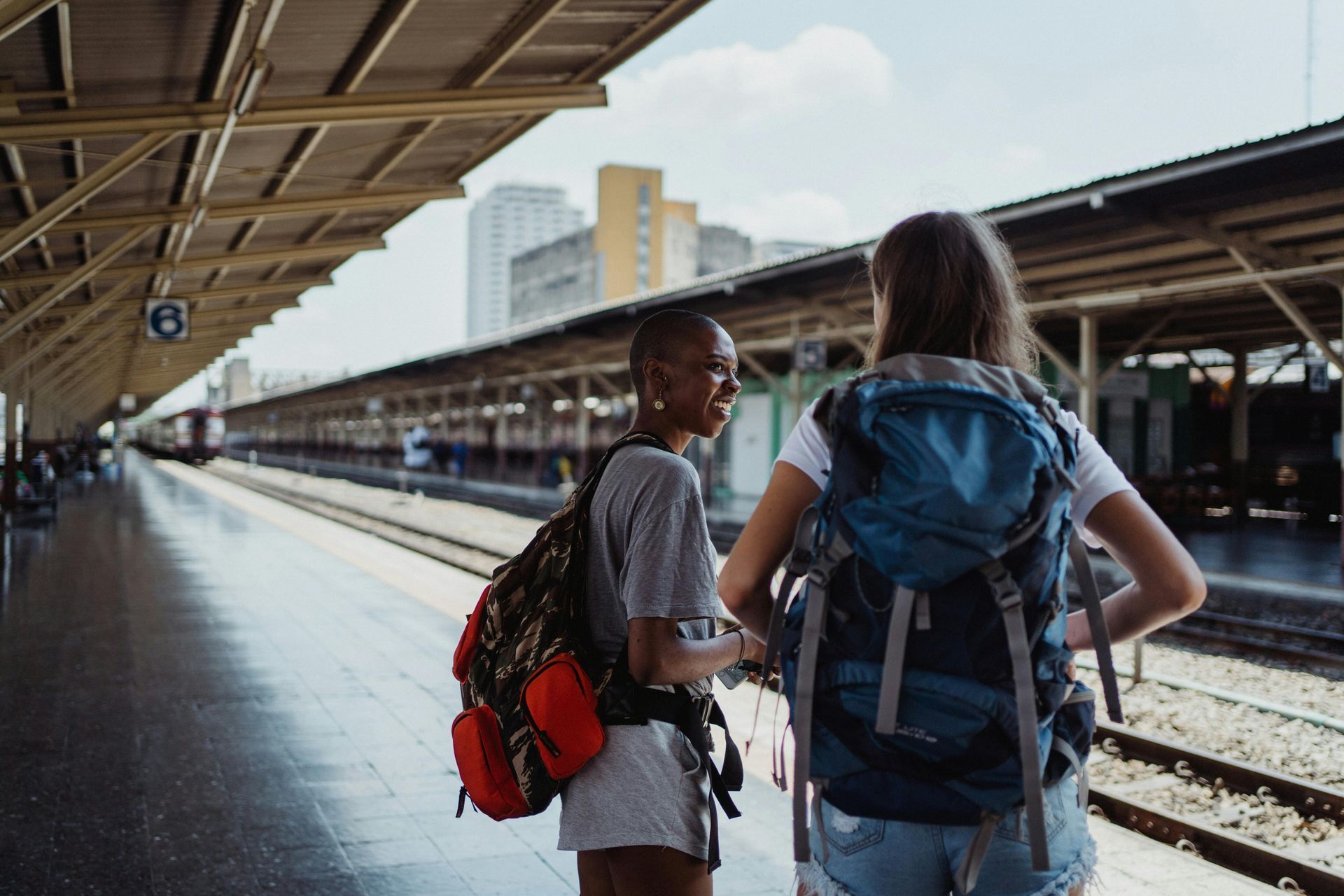
Myth #6: “Queer Travellers Aren’t Welcome in Family or Cultural Settings”
Some people assume that being LGBT+ means sticking to nightlife districts or urban party scenes.This myth misses an entire side of queer travel: cultural connection and family discovery.
The truth behind the myth
Across the world, museums, cooking schools, eco-lodges, and local homestays have quietly embraced inclusivity.Families who host travellers increasingly value openness and mutual respect over traditional expectations.In destinations like Sri Lanka, Peru, and Morocco, local guides trained in diversity awareness make cultural immersion safe and rewarding.
Queer families — parents with children, multigenerational trips, or chosen families — are also part of this growing movement.Tour companies now design itineraries that combine cultural education with child-friendly activities, ensuring everyone feels seen.
How to experience culture authentically
- Book community-led tours. They often reinvest earnings into local LGBT+ initiatives.
- Ask about inclusive language. Knowing the right local terms fosters mutual respect.
- Engage, don’t hide. A friendly conversation often breaks stereotypes faster than any campaign.
Cultural travel can be one of the most affirming experiences for queer travellers — proving that belonging isn’t limited to bars or beaches.
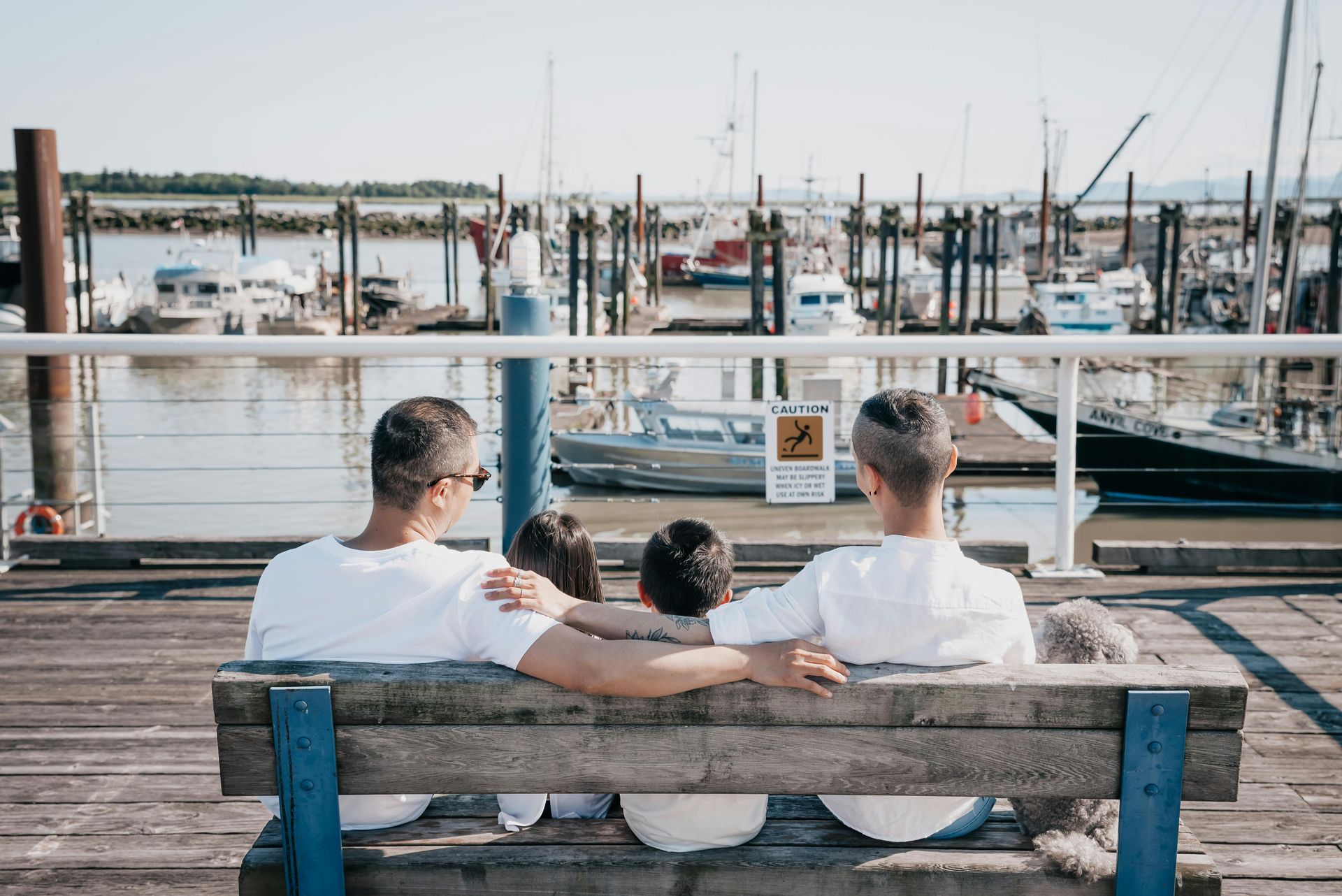
Understanding Your Booking Protections
Booking with a trusted LGBT+ travel specialist offers peace of mind that general online deals can’t.
Wide Awake Holidays is both ATOL-protected and a member of Protected Trust Services, meaning:
- Your payments are financially protected.
- Replacement flights or refunds are guaranteed if a provider fails.
- Assistance is available 24/7 while abroad.
In addition, all partner hotels and operators are vetted for inclusion and safety.
This combination of legal protection and cultural awareness is what makes professional LGBT+ travel planning so valuable.
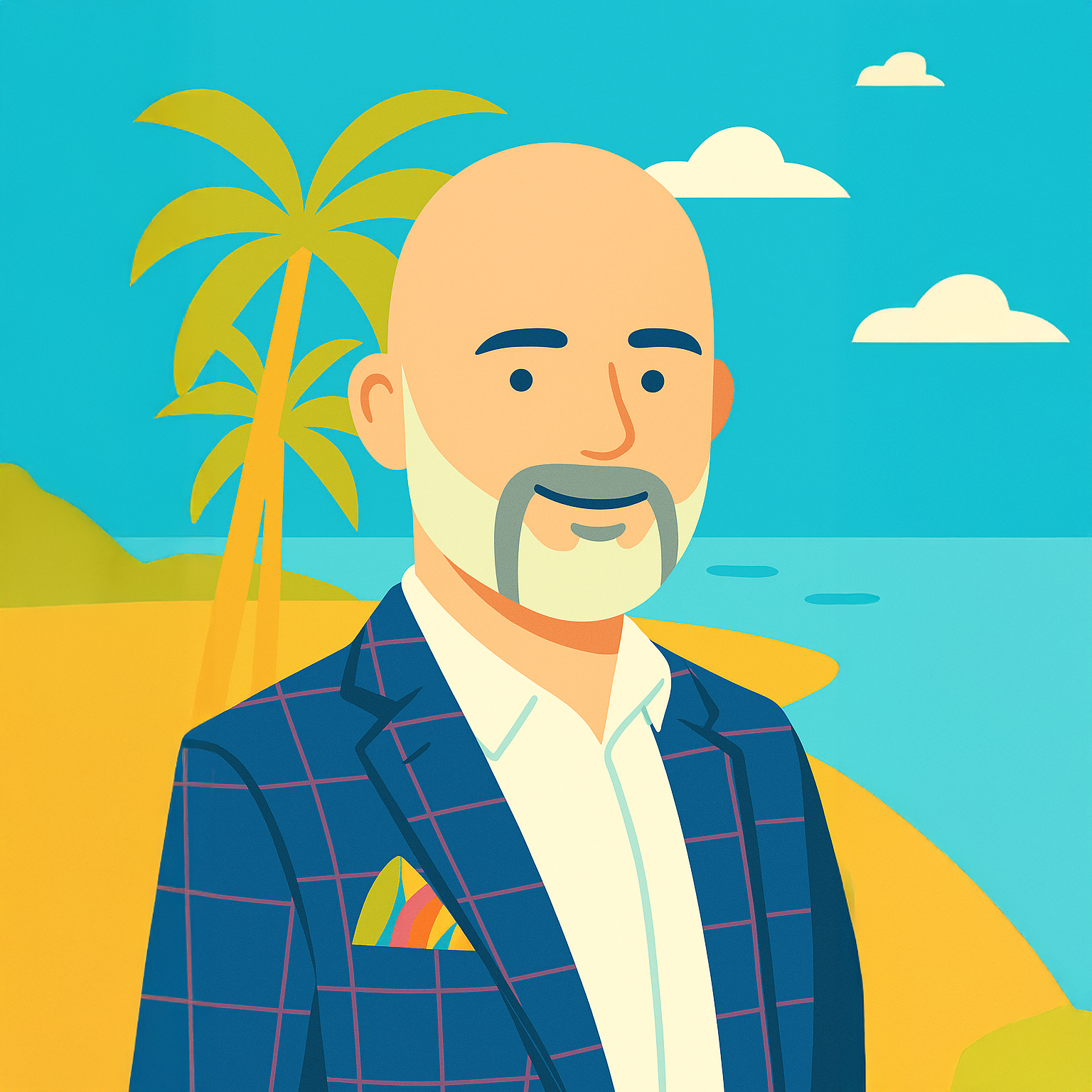
Jamie Says:
"LGBT+ travel has always been about more than just holidays. It’s about claiming joy, safety, and connection wherever you go. When travellers see the world confidently as themselves, it changes them — and it quietly changes the world too."
Jamie Wake, Managing Director
Understanding Your Booking Protections
Booking with a trusted LGBT+ travel specialist offers peace of mind that general online deals can’t.
Wide Awake Holidays is both ATOL-protected and a PTS member, meaning:
- Your payments are financially protected.
- Replacement flights or refunds are guaranteed if a provider fails.
- Assistance is available 24/7 while abroad.
In addition, all partner hotels and operators are vetted for inclusion and safety.
This combination of legal protection and cultural awareness is what makes professional LGBT+ travel planning so valuable.
Travelling Forward
The myths holding LGBT+ travellers back are slowly fading — but only if we keep challenging them.
Visibility, education, and community-driven travel will continue to expand what’s possible.
Whether you’re dreaming of your first Pride abroad or a quiet rural escape with your partner, your journey deserves confidence and care.If you’re ready to start planning, get in touch with the Wide Awake Holidays team to design a trip that feels fully, unapologetically yours.
Send an Enquiry
We will get back to you as soon as possible.
Please try again later.
Frequently Asked Questions
1. Is it safe to travel as an LGBT+ person?
Yes — most countries welcome queer travellers. The key is researching local laws and using LGBT-friendly providers.
2. Do I need to book through an LGBT-specific agency?
Not always, but inclusive agencies ensure hotels and tours genuinely respect your identity.
3. Can same-sex couples share a bed everywhere?
In most tourist destinations, yes. Always confirm politely when booking smaller guesthouses.
4. Are there affordable LGBT holidays?
Absolutely. Budget-friendly queer travel has grown through hostels, group tours, and off-season deals.
5. How can trans travellers stay safe at airports?
Match documents early, request private screening, and use airlines experienced in inclusive procedures.
6. Do travel insurance policies cover same-sex partners?
Yes — reputable insurers treat all partnerships equally once legally recognised.
7. What should I do if I face discrimination abroad?
Stay calm, record details, and contact your travel representative or local embassy for support.
8. Are Pride events suitable for families?
Many are! Increasingly, daytime Pride activities welcome children and families.
9. Do I need to hide my relationship in conservative countries?
Discretion helps in some contexts, but most travellers find polite respect works better than fear.
10. How can I support inclusive tourism?
Book queer-owned stays, attend local Pride festivals, and share positive travel stories online.
Some of our Latest Offers
Discover our latest hand-picked travel offers below – automatically updated and inspired by the destinations featured in this blog.
